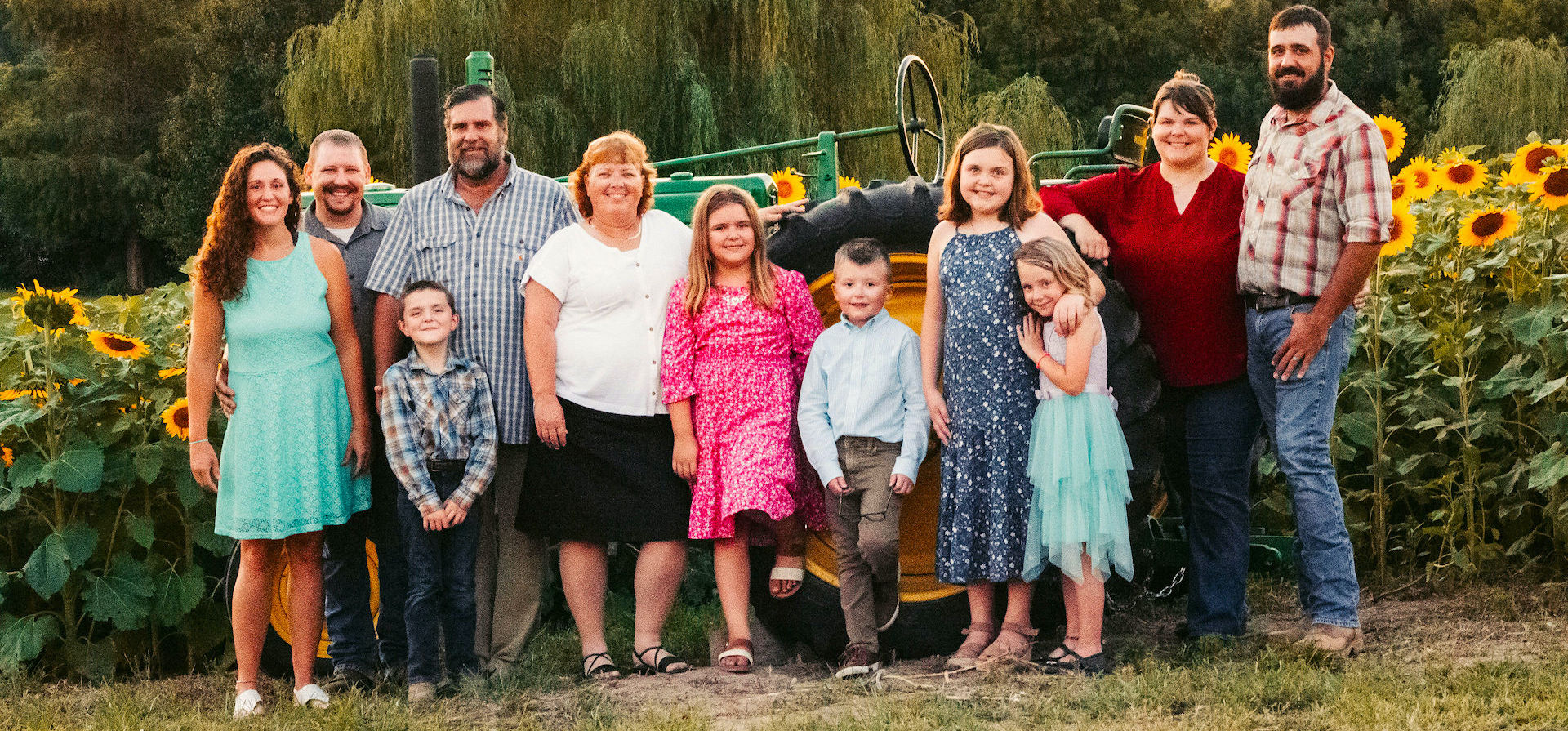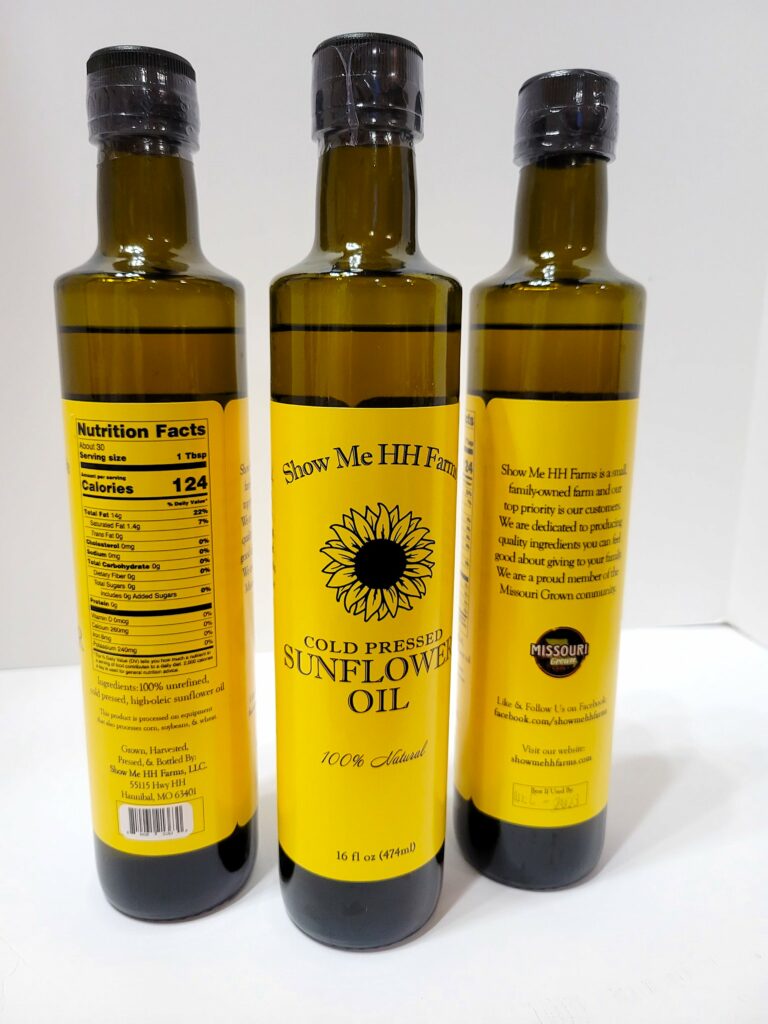Hannibal farm providing sunflower oil during shortage caused by war in Ukraine, Russia

HANNIBAL, Mo. – A northeastern Missouri farm is making sunflower oil amid a global shortage linked to the Russian invasion of Ukraine.
Family-owned and operated Show Me HH Farms of Hannibal offers cold-pressed sunflower seed oil, a primary cooking oil in many parts of the world. Sunflower oil’s light yellow color, mild flavor and ability to withstand high cooking temperatures make it a favorite of cooks.
Before the war, Ukraine and Russia supplied as much as 75 percent of the world’s supply of sunflower oil, according to William Meyers, emeritus professor of agriculture and applied economics at the University of Missouri’s Food and Agricultural Policy Research Institute.
Show Me HH owners Kent and Kathy Brown and their son and daughter-in-law, Phillip and Amberlyn, sell the oil at farmers markets, their farm and retail outlets. Their sunflower fields, open to the public when sunflowers are in full bloom, provide a striking backdrop for photos.
The Browns began their small-batch operation in 2021 after consulting on food safety and equipment needs with MU Extension specialist James Meyer and the Ralls County Health Department. Meyer also told the Browns about Missouri Grown USA, a Missouri Department of Agriculture program that supports Missouri agricultural products.
The response has been good, the Browns say. Customers like the oil’s mild, nutty flavor, says Amberlyn, especially in salad dressings and when sauteing.
“When used at high temperatures, there is no distinguishable flavor, and that appeals to customers as well,” she says.
The Browns grow high-oleic sunflowers on 20 acres of their farm, which is otherwise dedicated primarily to traditional row crops. They harvest the sunflower heads using a combine with a special header. After harvest, in late October or early November, they clean and crush dried sunflower seeds. Seeds go into a press that squeezes out the oil. The Browns sell the separated waste for cattle feed.
The process is slow – about 10 hours for a 30-gallon drum of oil. The oil is black when first extracted and bottled. They rack it like wine to allow the dark parts to settle and clear.
A sunflower head is not a single flower but consists of many small ray flowers. The massive sunflower heads may contain up to 2,000 seeds. The oil content of the seeds is high – more than 40 percent.
High temperatures and dry weather made for plenty of sunshine at the farm this year, when the Browns nearly tripled their production of sunflowers on the same amount of acreage.
The sunflower is a native plant in Missouri. It was grown more than 1,000 years ago by the Cahokia mound builders in what is now the St. Louis area, says Rob Myers, adjunct associate professor and director of the Center for Regenerative Agriculture at MU. Myers says the first known commercial processing of sunflowers in the U.S. was in Missouri in 1926, when growers worked with the MU Engineering Experiment Station and the MU Department of Chemistry to process sunflower oilseed.

Miss Clipping Out Stories to Save for Later?
Click the Purchase Story button below to order a print of this story. We will print it for you on matte photo paper to keep forever.

